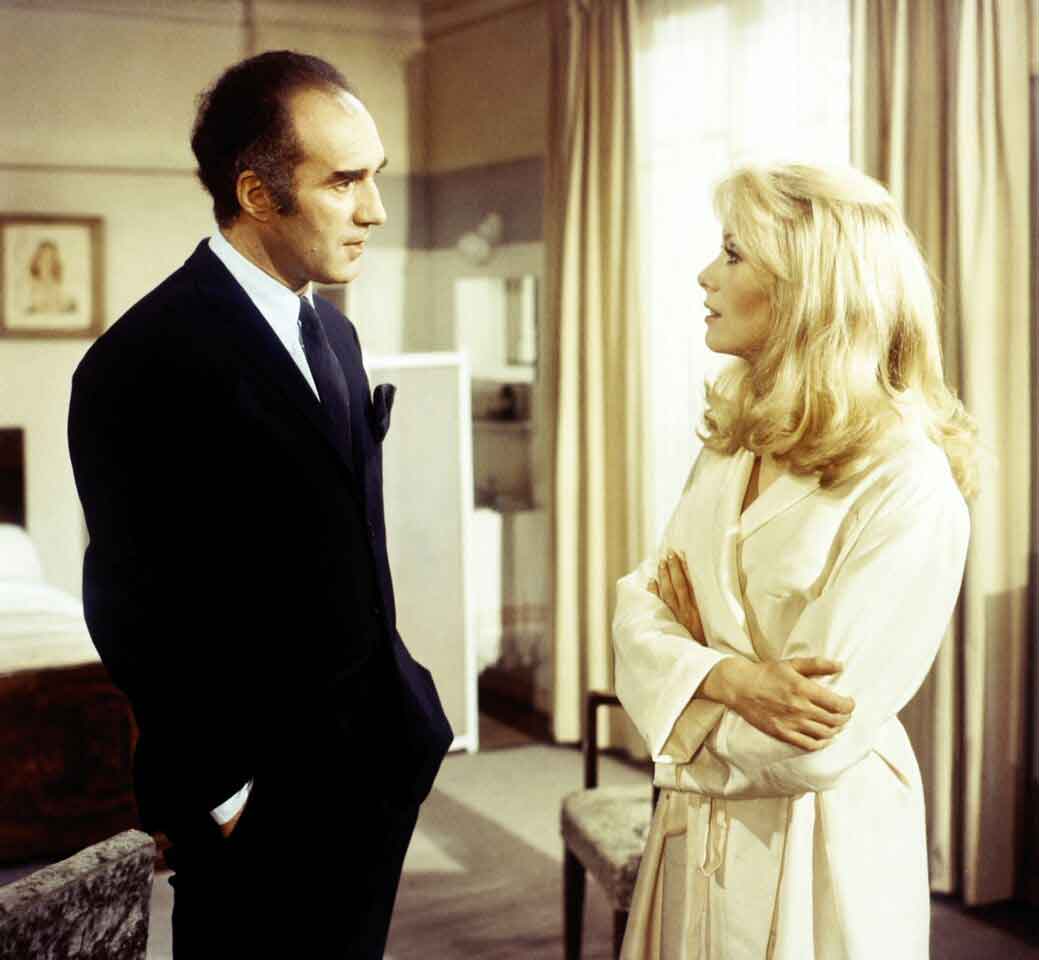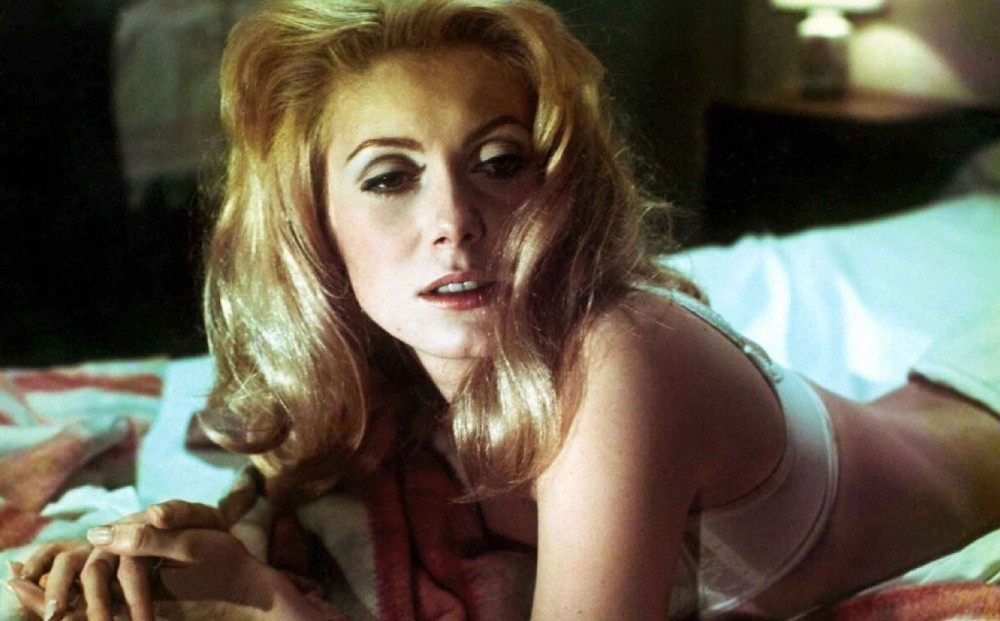BELLE DE JOUR
2:00 4:00 6:00 8:00 10:00
Through Thursday, March 29
Directed by Luis Buñuel
Starring Catherine Deneuve, Michel Piccoli, and Jean Sorel
New 4K Restoration
(1967) “Pierre, please don’t let the cats out,” plaintively requests almost-dainty Catherine Deneuve to her handsome doctor husband Jean Sorel, who interrupts their country idyll to order their coachmen to strip, whip, and assault her among the trees — “The coach again?,” p.j.-clad Sorel resignedly replies as they prepare for sleep in twin beds. And, during a chance encounter at the tennis club, though constantly insinuating family friend Michel Piccoli insists “I’m harmless,” he mentions his favorite “house,” helpfully adding its address at 11, Cité Jean de Saumur. And so with the aid of Geneviève Page’s Madame Anaïs, Deneuve becomes “Belle de Jour.” Possessiveness, actual marital devotion, that constant buttinsky Piccoli, street violence, etc., precipitate an ending totally surreal… and yet totally logical. Screenplay by Buñuel and Jean-Claude Carrière, from the novel by Joseph Kessel, author of Army of Shadows. 4K DCP restoration. Approx. 100 min.
Restored in 4K from the original negative by Studiocanal, in partnership with the CNC, La Cinémathèque Française, the Franco-American Cultural Fund and the house of Yves Saint Laurent. Presented with support from the George Fasel Memorial Fund for Classic French Cinema.
A Janus Films Release.

Reviews
“A coolly outrageous masterpiece… As flawless as its star, the movie is founded on the great surrealist’s genius for free-associative chitchat and orchestrated Freudian slips, right down to its teasingly open ending.”
– J. Hoberman, The New York Review of Books
“Understands eroticism from inside-out.”
– Roger Ebert
“A really beautiful movie, and somehow, letting the color in —this is Buñuel’s first color film — has changed the emotional quality of his obsessions in a completely unpredictable way… Every detail has been so carefully thought out that seeing it again is like seeing it in another key.”
– Renata Adler, The New York Times
“Haunting, amusing, provocative, teasing, and elegant in its puzzle-like ambiguities.”
– Jonathan Rosenbaum

